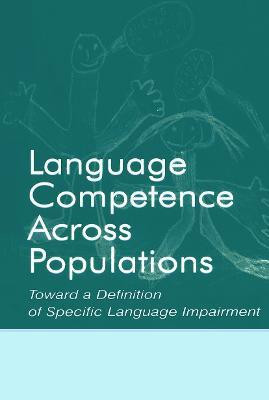Language Competence Across Populations(English, Paperback, unknown)
Quick Overview
Product Price Comparison
This unique, edited book bridges studies in language disorders and linguistic theory with timely contributions from leading scholars in language development. It presents an attempt to define Specific Language Impairment, relating it to children of normal and disordered language capabilities. The chapter presentations examine language development across a variety of populations of children, from those with Specific Language Impairment to second language learners. The contributors discuss criteria for the definition of SLI, compare and contrast SLI with profiles of children with other disorders and dialects, and offer a comprehensive look at the Whole Human Language, which ties together spoken and signed languages. Methodological concerns that affect the credibility and generalizability of the findings are discussed and controversies between opposing linguistic approaches to language acquisition are presented. The conceptual thread that gradually reveals itself as the chapters unfold is a theoretical issue of central importance to cognitive theory, as well as to our understanding of the biological correlates of language--it concerns the variability that linguistic competence can manifest in children under different biological conditions and life circumstances. Language Competence Across Populations: Toward a Definition of Specific Language Impairment is an essential volume for advanced students and scholars in linguistics and psychology who have an interest in language acquisition and language disorders, as well as for the clinical professionals dealing with children with language impairments.


